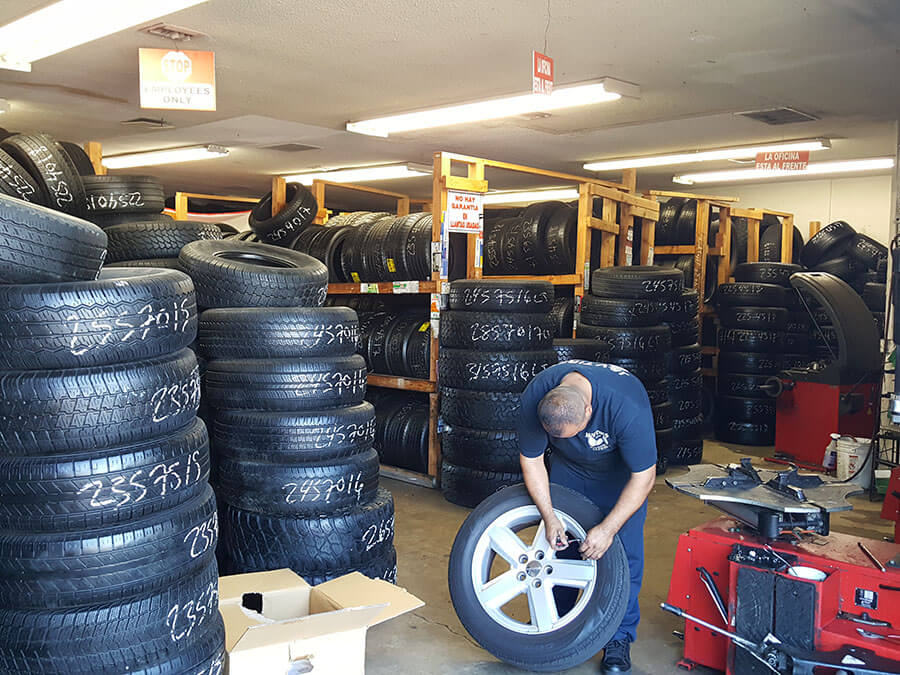Morris Tire and Alignment: Your Relied On Source for Reliable Service
Morris Tire and Alignment: Your Relied On Source for Reliable Service
Blog Article
Tire Service: Understanding Tire Pressure Tracking Solutions
Understanding Tire Pressure Monitoring Equipments (TPMS) is a vital aspect of maintaining optimum lorry efficiency and safety when driving. With improvements in automobile innovation, TPMS has come to be a common attribute in modern-day cars, providing real-time info on tire pressure levels. Diving much deeper into the ins and outs of TPMS, one can reveal the various elements that compose this system and the relevance of each in making sure accurate monitoring. From direct to indirect TPMS systems, the landscape of tire stress monitoring is varied, each with its one-of-a-kind collection of advantages and considerations. Keep tuned to untangle the intricacies of TPMS, from maintenance tips to the obvious advantages of keeping your tires properly inflated. tire shop morris.

Value of TPMS
The significance of Tire Pressure Surveillance Equipments (TPMS) hinges on their capability to enhance car safety and efficiency via real-time tracking of tire pressure levels. Preserving the right tire stress is crucial for making sure ideal handling, stopping, and overall safety and security of a lorry. TPMS gives motorists with instant comments on any type of underinflated or overinflated tires, enabling timely modifications to be made.
Elements of TPMS
Making up numerous important elements, a Tire Pressure Tracking System (TPMS) operates as an innovative safety feature in modern-day vehicles. The major components of a TPMS include sensing units, a control component, and a caution indication. Sensors are usually situated in the tire valve stem or attached to the wheel assembly, where they determine tire pressure and transmit information to the control module. The control module processes this details and causes a caution if it discovers substantially reduced stress in any one of the tires. The caution sign, commonly a symbol on the dashboard, signals the vehicle driver to examine the afflicted tire or tires. Some advanced TPMS models likewise display the actual tire pressure readings for each and every tire, supplying chauffeurs with real-time information to guarantee optimum tire efficiency and safety. By keeping an eye on tire pressure constantly, TPMS assists avoid crashes, decreases tire wear, and improves gas efficiency, making it a critical part for car safety and performance.
Kinds Of TPMS

On the other hand, indirect TPMS depends on the vehicle's wheel speed sensors to keep track of tire stress. This system spots underinflation by contrasting the rotational rates of the wheels. Indirect TPMS is much less pricey than straight TPMS, as it makes use of existing sensing units within the lorry.
While straight TPMS offers much more exact analyses, indirect TPMS is easier in design and commonly requires less maintenance. Both systems have their constraints and benefits, and the selection between them usually depends upon aspects such as price, car make, and individual preference. Comprehending the differences in between these two sorts of TPMS can help lorry owners make educated decisions regarding tire maintenance and safety.
TPMS Upkeep Tips
Effective maintenance of TPMS is vital for guaranteeing optimal performance and security of your automobile. Consistently evaluating the TPMS sensing units for any type of damage or deterioration is crucial. Ensure that the sensors are tidy and complimentary from particles that might conflict with their performance. In addition, it is advisable to check the sensing unit batteries periodically and replace them as needed to ensure accurate readings. Conduct regular examine the tire pressure levels and contrast them this page with the TPMS readings to guarantee they are constant. If there are any disparities, visit this web-site alter the system adhering to the maker's guidelines. In addition, throughout tire rotation or substitute, make certain that the TPMS parts are managed very carefully to stop any prospective damage. If the TPMS alerting light brightens on the control panel, deal with the problem without delay by inspecting the tire stress and the general system for any mistakes. By sticking to these maintenance pointers, you can lengthen the life-span of your TPMS and enhance the safety of your driving experience.
Benefits of Correct Tire Pressure
Maintaining proper tire stress, as highlighted in TPMS Maintenance Tips, is important for reaping the various advantages connected with optimum tire pressure degrees. Among the key benefits of keeping the appropriate tire pressure is boosted gas effectiveness. When tires are effectively pumped up, there is less moving resistance, leading to far better fuel economy. In addition, appropriate tire pressure makes sure also tire wear, extending the life-span of the tires and advertising more secure driving conditions. With the appropriate tire pressure, vehicles additionally have better handling and traction, especially in unfavorable climate problems. This can improve overall driving performance and safety and security for the vehicle driver and passengers. Furthermore, keeping ideal tire stress can contribute to a smoother and a lot more comfortable ride by lowering resonances and sound brought on by underinflated tires. Finally, the benefits of proper tire stress exceed simply tire longevity; they incorporate boosted fuel performance, enhanced safety, much better car performance, and total driving comfort.
Final Thought
In final thought, understanding tire pressure monitoring systems (TPMS) is crucial for maintaining optimal tire pressure and guaranteeing lorry safety and security. By identifying the significance of TPMS, being acquainted with its components, knowing the different types offered, adhering to appropriate maintenance ideas, and recognizing the advantages of keeping proper tire pressure, drivers can improve their driving experience and prolong the life-span of their tires. Appropriate tire pressure is crucial to find more info safe and efficient car operation.

Report this page